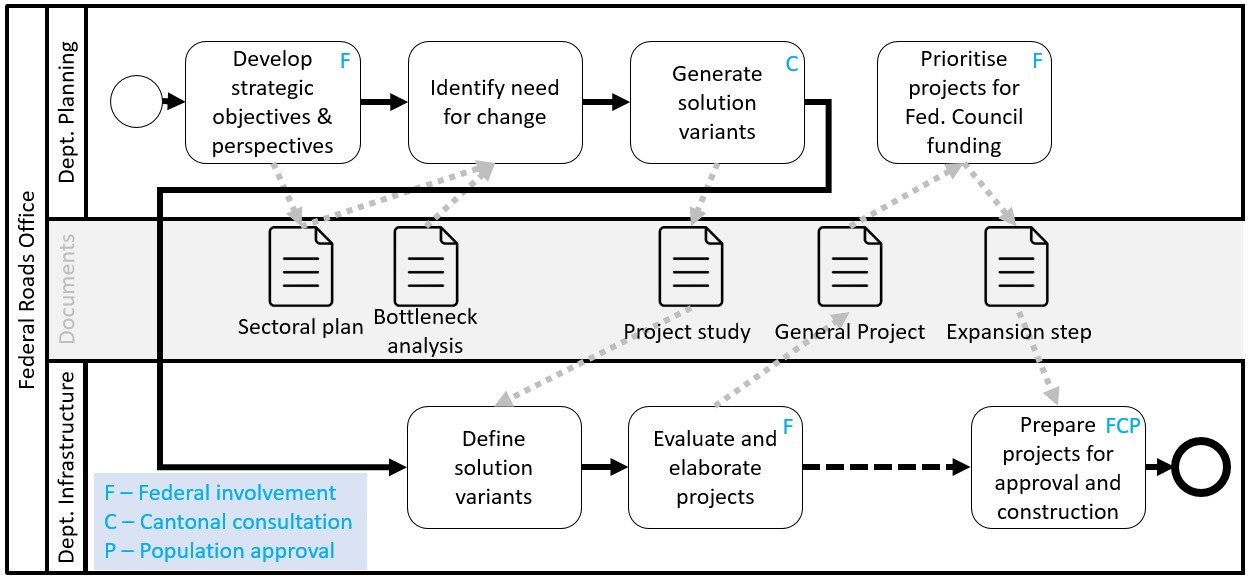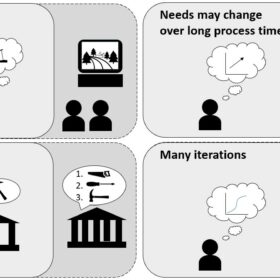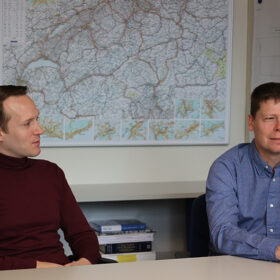
Responsiveness of planning processes is the ability to meet changing societal transport needs quickly in ways that are acceptable to all stakeholders. In Switzerland, considerable traffic jams and overfilled trains indicate that planning processes could be made more responsive. As delays for travelers persist, their needs are not being met, which is like an additional cost experienced by society.
Transport infrastructure planning is particularly challenging for at least four reasons:
- It requires the involvement of many organisations.
- It requires reconciling diverse stakeholder needs.
- The long duration of the planning process leads to tendency to refrain from decision.
- The iterative nature of the planning process elongates the planning process and reinforces the issues (i)-(iii) listed above.
To thoroughly address these challenges, an overarching end-to-end overview of the process in its entirety is necessary. A recent report contributes the first publicly available description of the Swiss road and rail infrastructure planning process in its entirety and an analysis of potential improvements of process effectiveness and efficiency.
The process has been modelled for three levels of infrastructure: national road, national rail and cantonal road and rail infrastructure. The process includes multiple stakeholders, organisations and different levels of government. The image above shows a simplified version of the process related to national roads.
In a recent presentation the process of planning cantonal cycling infrastructure was illustrated in a similar way. In the example, three organisations are involved in planning infrastructure and at least three more across different government levels are involved in approving and financing the planned changes, based on societal needs and cost-benefit ratios.
To address the challenges i.-iv. the following opportunities have been identified:
- A national organisation, e.g., the ARE, would be made responsible for coordinating infrastructure development in an early stage, e.g., when defining sectoral plans.
- This organisation would be well equipped with a decision-support tool that would better estimate network-wide benefits considering multiple future scenarios.
- The explicit consideration of future uncertainty will support from design to appraisal to ensure robust planning outcomes.
- Policy-makers, responsible for defining planning processes, would critically reflect on the added value of each planning task.
The identified opportunities have a good chance of making the process more responsive leading to improved effectiveness and efficiency because they support consensus-building based on transparent decision-support.
 Arnór B. Elvarsson is a doctoral researcher interested in the interactions between process governance and model-based support tools for decision making in infrastructure planning. Arnór is a researcher at the Singapore-ETH Centre and the Infrastructure Management Group of the Institute of Construction and Infrastructure Management, ETH Zürich.
Arnór B. Elvarsson is a doctoral researcher interested in the interactions between process governance and model-based support tools for decision making in infrastructure planning. Arnór is a researcher at the Singapore-ETH Centre and the Infrastructure Management Group of the Institute of Construction and Infrastructure Management, ETH Zürich.
Prof. Dr. Bryan T. Adey is the Head of the Infrastructure Management Group and PI of the Adaptive Mobility Infrastructure and Land-use Module at FCL Global.


